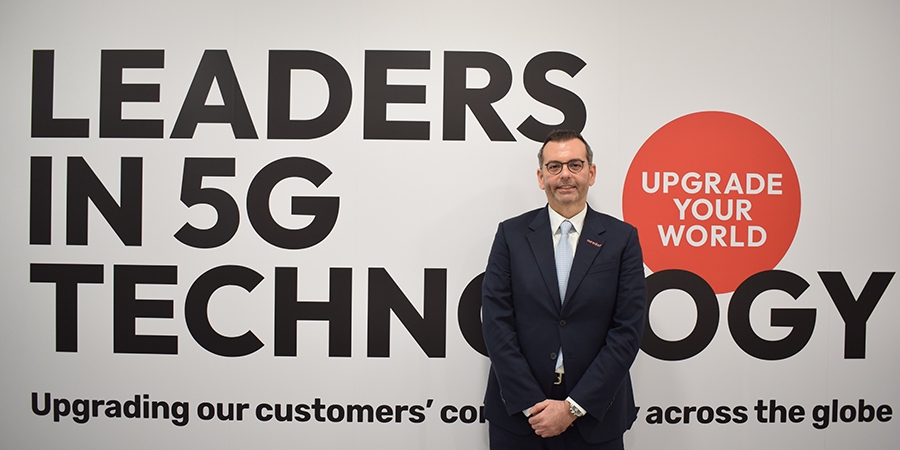During MWC 2023, Ooredoo Group Regional CEO Ahmad Al Neama shared his perspective about the operating markets he is handling (particularly Indosat Ooredoo Hutchison’s (IOH) post-merger performance), the company’s digital service delivery and its overall contribution to the digital economy.
According to the official statement, a year after the merger, Indosat Ooredoo Hutchison (IOH) performed better than originally planned in 2022, and it recently agreed to a 10-year tower leaseback agreement. How does this solidify your position in the Asian market?
We have done a successful merger in Indonesia with our partner CK Hutchison, and it was done in a difficult time during the COVID-19 pandemic. The 10-year tower leaseback agreement is a positive development for Ooredoo, as it allows IOH to monetize its tower assets while maintaining access to them for network operations.
This arrangement can provide IOH with additional financial flexibility to invest in network infrastructure, expand its service offerings, focus on its core business operations and drive growth in the Asian market.
The better-than-planned performance of IOH in 2022 is a positive sign for Ooredoo's position in the Asian market and indicates that the company is successfully implementing its growth strategies, improving operational efficiency, and delivering value to its customers and shareholders.
The improved financial performance could help to attract additional investment and partnership opportunities, making the company well-positioned to compete in the region's telecommunications market.
Overall, a positive performance and a 10-year tower leaseback agreement are solidifying Ooredoo's position in the Asian market by enhancing its financial stability, attracting investor confidence, strengthening relationships with stakeholders, and providing a solid foundation for future growth.
How will Ooredoo’s operating markets in MENA continue to strive to deliver digital services?
Ooredoo Group has a strong presence in the Middle East and North Africa (MENA) region, with operations in several countries including Qatar, Oman, Kuwait, Tunisia, Algeria, Palestine and Iraq.
To continue delivering digital services and enhancing connectivity, Ooredoo Group is investing in network infrastructure to support the rollout of new technologies, such as 5G and IoT in some markets, but also network modernization and upgrades in other markets. We are also making significant investments in fiber roll-out and other high-speed broadband technologies, which can provide the backbone for new digital services.
We are also focusing on meeting the needs of businesses and individuals in our operating markets, such as e-commerce, mobile banking, and other digital solutions, by offering customized, affordable and reliable digital services.
Partnering with key stakeholders to foster innovation and develop new digital solutions helps us to further create new business opportunities, improve efficiency and drive growth across a range of industries.
Promoting digital literacy and skills development to ensure that individuals and businesses in our operating markets can fully leverage the benefits of new digital technologies is also important. This can help to promote innovation, create new job opportunities, and drive economic growth.
Overall, we will continue to strive to deliver digital services that upgrade the way our customers work and live. By investing in network infrastructure, focusing on customer needs, partnering with key stakeholders, and promoting digital literacy, Ooredoo Group is well equipped to drive growth and innovation in the region's digital economy.
From your perspective, how crucial is the role of telecom operators such as Ooredoo Group in leveraging technologies? How will this impact the growth of nations’ digital economies?
Telecom operators are at the forefront of providing connectivity to individuals and businesses, enabling them to access and utilize digital technologies.
As technology continues to evolve, telecom operators play an important role in deploying and maintaining the necessary infrastructure to support new technologies and services, such as 5G, IoT, cloud computing and edge computing.
Ooredoo is at the forefront of deploying these technologies, which have the potential to transform industries and create new business models, thereby driving economic growth.
In particular, telecom operators like Ooredoo Group can have a significant impact on the growth of nations' digital economies by expanding connectivity and improving access to digital services.
Indeed, Ooredoo Group, for example, has been instrumental in developing and deploying telecommunications infrastructure across many countries in the Middle East, North Africa, and Southeast Asia.
By doing so, we have enabled individuals and businesses to access the internet (through state-of-the-art, reliable networks) and other digital services, which has in turn spurred innovation and economic growth and has created new business opportunities, improved efficiency and driven growth across a range of industries.
In addition, telecom operators can also contribute to bridging the digital divide by providing affordable access to digital services to underserved communities, particularly in developing countries. This can help reduce inequality and promote inclusive economic growth.
Overall, the role of telecom operators such as Ooredoo Group in leveraging technologies is crucial to the growth of digital economies. By investing in and deploying new technologies, and by expanding access to digital services, telecom operators can contribute significantly to economic growth and development.










